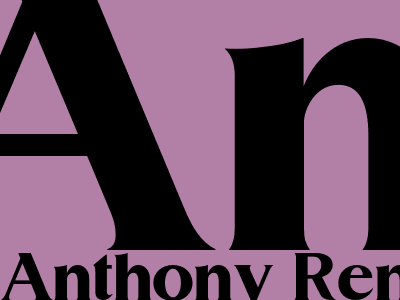
Anthony Rendon Holds Up a Nation Infamous for Ethnic Cleansing as a Model for California
California Assembly Speaker Anthony Rendon's remarks suggesting California adopt an Israeli-style "apartheid system" to address racial disparities in the state have sparked outrage and condemnation from Jewish leaders and civil rights groups.
Rendon, a Democrat, made the comments during a recent speech to the California Legislative Black Caucus, in which he praised Israel's "success" in addressing racial inequality and suggested that California could learn from its example. Though Rendon later walked back these comments, many of his critics are not convinced.
Rendon's remarks have been widely condemned by Jewish leaders and civil rights groups, who have accused him of promoting a system of racial segregation and discrimination. The Anti-Defamation League (ADL) called Rendon's comments "deeply offensive and deeply ignorant" and said they "demonstrate a fundamental misunderstanding of Israel and its history." The American Jewish Committee (AJC) also condemned Rendon's remarks, saying they "perpetuate harmful stereotypes about Israel and its people." NAACP President Derrick Johnson also criticized Rendon's comments, saying they "hark back to a dark period in our nation's history." Jewish groups have reminded Rendon that Israel itself was founded as a safe haven for Jews fleeing persecution and that it has a long history of welcoming immigrants and refugees. As such, they argue that it is deeply offensive to compare Israel to an apartheid state. Rendon's comments have also been criticized by some of his fellow Democrats, including Governor Gavin Newsom, who said that Rendon's remarks "do not reflect the values of California."
Rendon has since apologized for his remarks, saying that he "misspoke" and that he "deeply regrets" his choice of words. However, many of his critics are not convinced that his apology is sincere. The ADL said that Rendon's apology "rings hollow" and that he needs to do more to educate himself about the history of Israel and apartheid.
The controversy over Rendon's remarks highlights the deep divisions over Israel in the United States. While many Americans view Israel as a close ally and a beacon of democracy in the Middle East, others see it as an apartheid state that oppresses Palestinians. These divisions are likely to continue to fuel debate over Israel's policies and its relationship with the United States.
In-depth Analysis
Rendon's comments have sparked a debate about the nature of Israel's treatment of Palestinians. Some argue that Israel is an apartheid state, while others maintain that it is a democracy that is committed to protecting the rights of all its citizens. To understand this debate, it is important to examine the history of Israel and its relationship with the Palestinians.
The State of Israel was founded in 1948 on land that had been part of the British Mandate of Palestine. The majority of the population of Palestine at the time was Arab, and many of them were displaced or fled during the 1948 Arab-Israeli war. Since then, Israel has been accused of carrying out a systematic campaign of ethnic cleansing against the Palestinians, a charge that Israel denies. The debate over whether Israel is an apartheid state is complex and there are strong arguments on both sides.
Those who argue that Israel is an apartheid state point to the fact that Palestinians in the Israeli-occupied territories are subject to a separate and unequal legal system. They also point to the fact that Palestinians are often denied basic rights, such as the right to vote or the right to freedom of movement. Additionally, they argue the Israeli government has intentionally discriminated against the Palestinians and has created a system of laws that make it difficult for them to own land or build homes.
Those who argue that Israel is not an apartheid state point to the fact that it is a democracy in which all citizens have the right to vote. They also point to the fact that Israel has a large Arab population that enjoys full rights of citizenship. Additionally, they argue that Israel is facing a real security threat from Hamas and other terrorist groups and cannot afford to grant full rights to Palestinians who may be sympathetic to these groups.
The debate over whether or not Israel is an apartheid state is likely to continue for many years to come. It is a complex issue with no easy answers. However, it is important to be aware of the arguments on both sides and to form your own opinion based on the facts.
Conclusion
Anthony Rendon's comments have sparked a much-needed debate about Israel's treatment of Palestinians. While there are strong arguments on both sides, it is important to remember that the Palestinians are a people with a rich history and culture. They deserve to be treated with respect and dignity, and they deserve to have their rights protected.